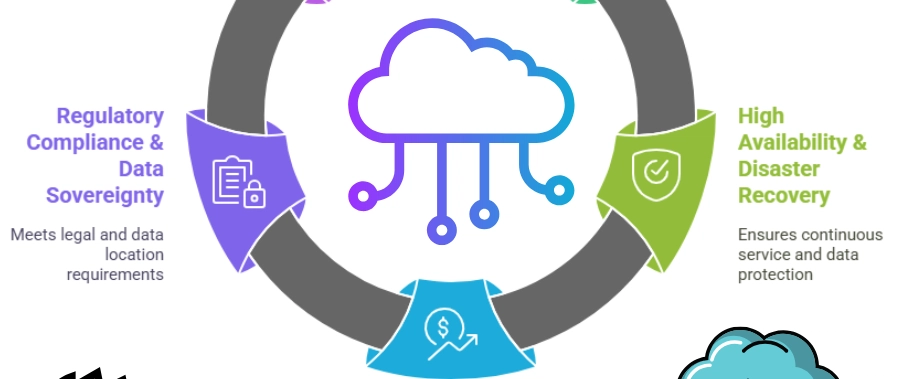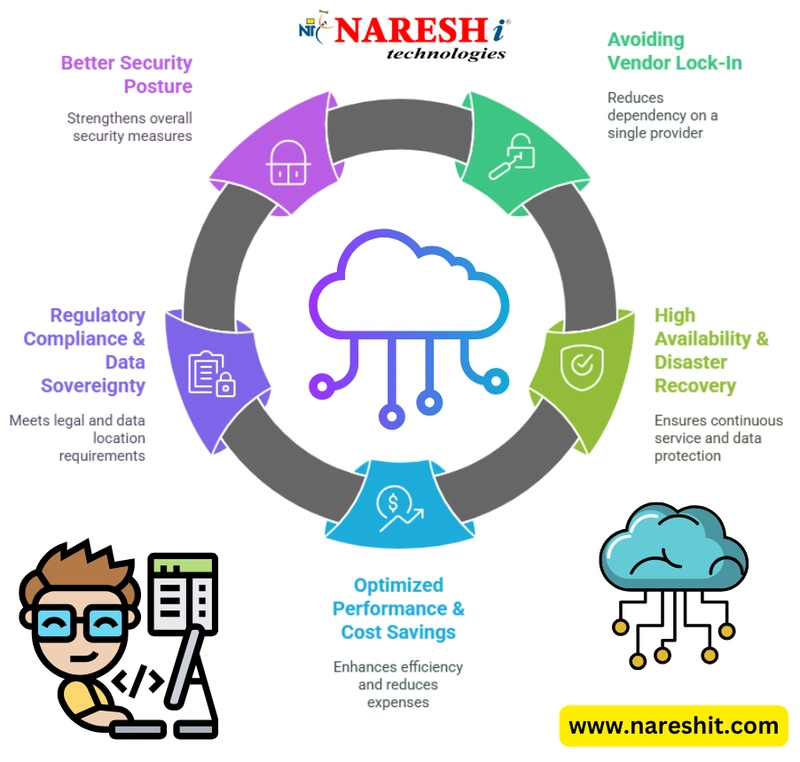Introduction
In the fast-paced world of software development, DevOps is no longer just a buzzword—it’s the driving force behind agility, scalability, and efficiency. But as businesses evolve, so do their infrastructure needs. Enter multi-cloud computing, a strategy that’s quickly becoming indispensable for DevOps teams.
If you’re in KPHB and looking to master this paradigm shift, investing in Multi-Cloud DevOps Training can be the key to unlocking new career opportunities.
What is Multi-Cloud in DevOps?
Multi-cloud is the practice of using multiple cloud providers—such as AWS, Azure, and Google Cloud—rather than relying on a single vendor. For DevOps, this means greater flexibility, resilience, and optimization.
With multi-cloud adoption, teams can:
Prevent vendor lock-in
Improve application availability
Optimize costs based on workload
Enhance security and compliance
Why Multi-Cloud is the Future of DevOps
Avoiding Vendor Lock-In
Relying on a single cloud provider can be risky. Multi-cloud ensures businesses aren’t dependent on one company’s pricing, policies, or downtime.High Availability & Disaster Recovery
If one cloud service faces an outage, a secondary provider keeps the system running. This is crucial for DevOps teams handling mission-critical applications.Optimized Performance & Cost Savings
Not all clouds are created equal. Some providers offer better services for AI workloads, while others excel in storage solutions. A multi-cloud approach allows businesses to pick the best features from different providers, reducing costs while improving performance.Regulatory Compliance & Data Sovereignty
Different regions have different regulations for data storage. Multi-cloud enables companies to store data across multiple providers while complying with local laws.Better Security Posture
DevOps thrives on automation and security integration. Using multiple cloud vendors enhances security by distributing workloads and reducing single points of failure.
Why DevOps Professionals in KPHB Should Learn Multi-Cloud
Hyderabad, and particularly KPHB, is a thriving tech hub. As companies expand their cloud strategies, multi-cloud expertise is in high demand. Learning multi-cloud DevOps can open doors to:
High-paying roles in cloud architecture and automation
Better job security and career growth
Opportunities to work with global companies leveraging multi-cloud strategies
If you're in KPHB, enrolling in a Multi-Cloud DevOps Training program can equip you with hands-on experience in cloud orchestration, automation tools, and security best practices.
FAQs
What skills are needed for Multi-Cloud DevOps?
Proficiency in AWS, Azure, and Google Cloud
Hands-on experience with Kubernetes, Terraform, and CI/CD tools
Security best practices for multi-cloud environmentsIs Multi-Cloud better than Single Cloud?
Yes, for most enterprises. It enhances resilience, cost optimization, and flexibility, but requires skilled DevOps engineers to manage complexities.Which tools are used for Multi-Cloud DevOps?
Kubernetes for container orchestration
Terraform for infrastructure as code
Ansible for configuration management
Prometheus & Grafana for monitoringWhat are the job roles for Multi-Cloud DevOps professionals?
Cloud Engineer
DevOps Architect
Site Reliability Engineer (SRE)
Automation EngineerWhere can I get Multi-Cloud DevOps Training in KPHB?
Several institutes in KPHB, Hyderabad offer specialized Multi-Cloud DevOps training with hands-on projects. Look for programs covering AWS, Azure, GCP, Kubernetes, Terraform, and CI/CD.
Final Thoughts
Multi-cloud is not just a trend—it’s the future of DevOps. If you’re a DevOps professional in KPHB, staying ahead in this evolving landscape requires hands-on training and expertise in multi-cloud architecture.




Top comments (0)